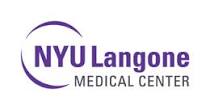CSII Pilot in Adolescents With Type 2 Diabetes
| Status: | Recruiting |
|---|---|
| Conditions: | Diabetes |
| Therapuetic Areas: | Endocrinology |
| Healthy: | No |
| Age Range: | 12 - 23 |
| Updated: | 10/26/2018 |
| Start Date: | October 2015 |
| End Date: | May 2019 |
| Contact: | Aura Sanchez |
| Email: | as5175@nyu.edu |
A Clinical Pilot to Assess Feasibility of Using Continuous Subcutaneous Insulin Injection Therapy (CSII: Insulin Pump) in Adolescents With Type 2 Diabetes (T2DM)
This feasibility pilot is intended to understand whether adolescents with Type 2 Diabetes
(2DM) can be transitioned to a continuous subcutaneous insulin injection (CSII) and if so,
assess whether CSII is a feasible treatment modality and improves quality of life (QOL) in
adolescents with T2DM over 3 month period.
(2DM) can be transitioned to a continuous subcutaneous insulin injection (CSII) and if so,
assess whether CSII is a feasible treatment modality and improves quality of life (QOL) in
adolescents with T2DM over 3 month period.
Inclusion Criteria:
- Adolescents with Type 2 Diabetes mellitus between the ages of 12- 23 years, who have
had T2DM for at least 6 month duration, and who have had a HbA1c > 8% in the preceding
3 months prior to enrollment into the study. As a diabetes is a chronic disease the
AAP (American Academy of Pediatrics; 2002) definition of a "Pediatric patient "is from
birth until 21 years old. There are patients in the Diabetes program that we sometimes
follow for 2-3 years beyond this age of 21 years and therefore would like to offer
this study until the age of 23 years. This will give opportunity to our patients to be
recruited if they would choose to participate in the study.
- Confirmed T2DM as defined by American Diabetes Association i.e. FPG > 126 mg/dL or
blood sugar > 200 mg/dl on a 2 hr, 75 g OGTT or random blood sugar >200 mg/dl.
Pubertal, Tanner stage >1
- Subjects must be willing to comply with study protocol requirements
- Females must have a negative pregnancy test within 72 hours prior to the start of the
study and on every subsequent study visit. If on any visit their pregnancy test is
positive they will be asked to not continue in the study. If the adolescent is using
contraception such as birth control pills they will be allowed to continue using them
during the study as this should not affect glucose levels. Once a female is confirmed
to be pregnant we will take the insulin pump and restart insulin injection regimen
that they were before the start of the study. We will also make an aptt with "high
risk obstretics" and encourage the adolescent to check their blood sugars at least 4-6
times per day.
- The patient must be on insulin to qualify for the study. The adolescents could be on
oral hypoglycemic agent in addition to insulin to be included in the study.
Exclusion Criteria:
- Chart review of adolescents with T2DM will be done to confirm absence of glutamic acid
decarboxylase, islet cell or insulin autoantibodies or secondary causes of diabetes
- Other significant major organ system illness
- Females who are pregnant at their initial assessment. We will be testing female
participants on every visit with a urine pregnancy test and if they are found to
pregnant we will ask them to stop using their pump and go back to using insulin
injections.
- Significant psychiatric illness: schizophrenia, bipolar disorder, active substance
abuse and uncontrolled major depression.
- All adolescents who have signs of renal insufficiency (creatinine clearance based on
Schwartz equation >0.55 for females and males 0.7 ages 13-18 years) (13). Serum
creatinine will be available on the metabolic profile. Subjects with elevated CrCl
will be excluded from the study.
We found this trial at
1
site
550 1st Ave
New York, New York 10016
New York, New York 10016
(212) 263-7300

Principal Investigator: Preneet Brar, MD
New York University Langone Medical Center NYU NYU Langone Medical Center, a world-class, patient-centered, integrated,...
Click here to add this to my saved trials